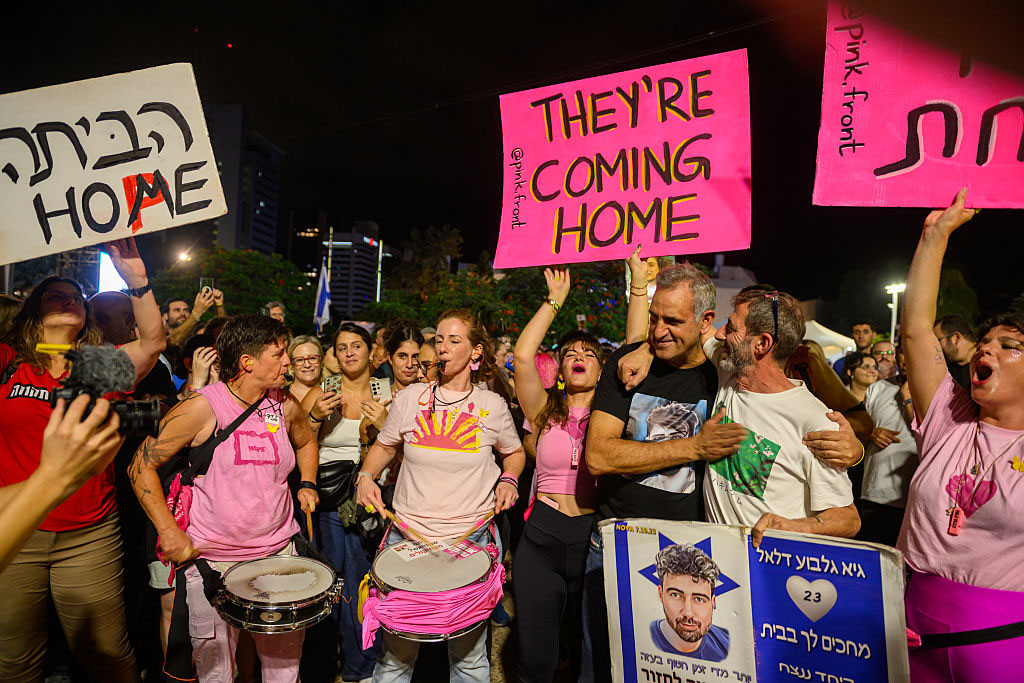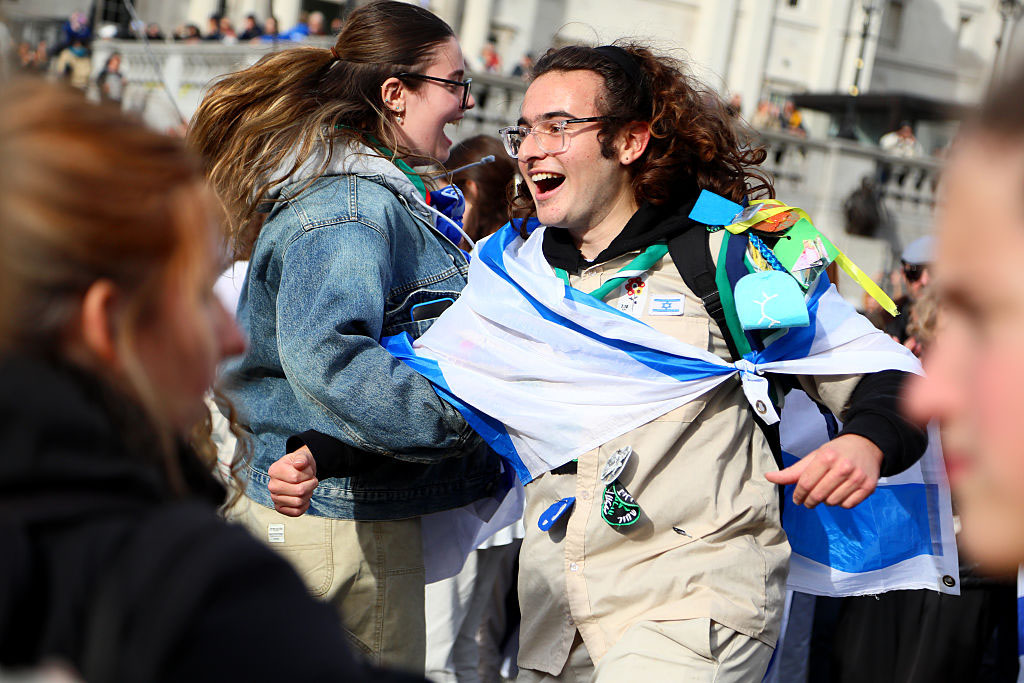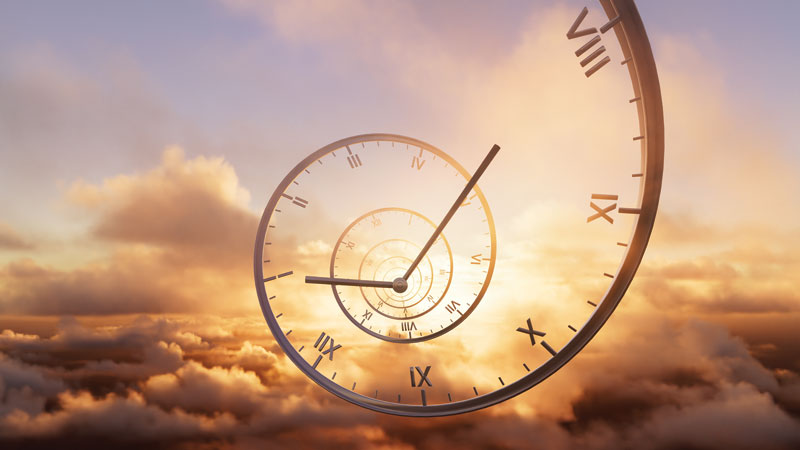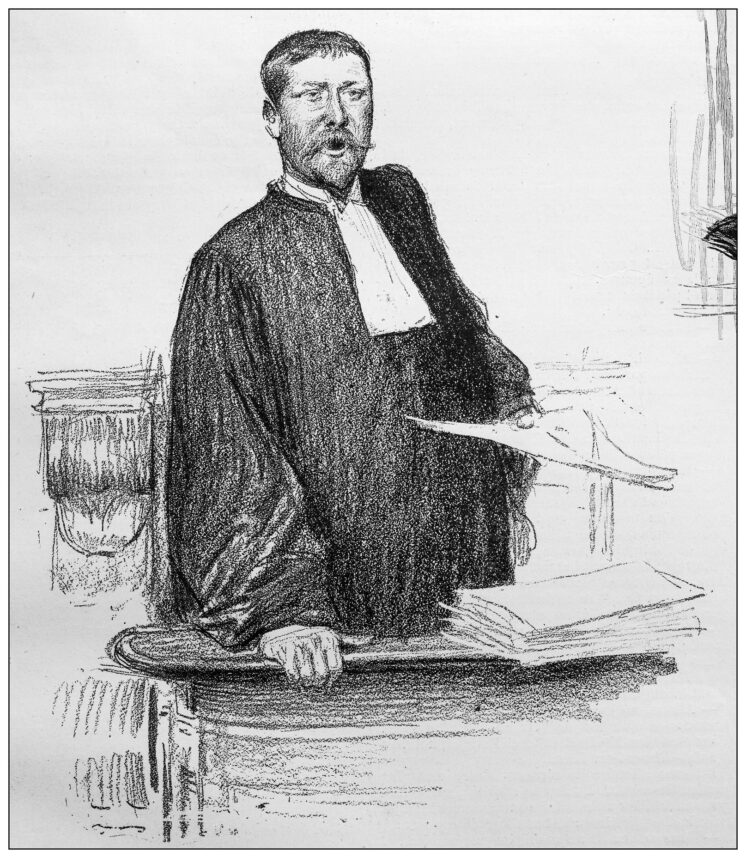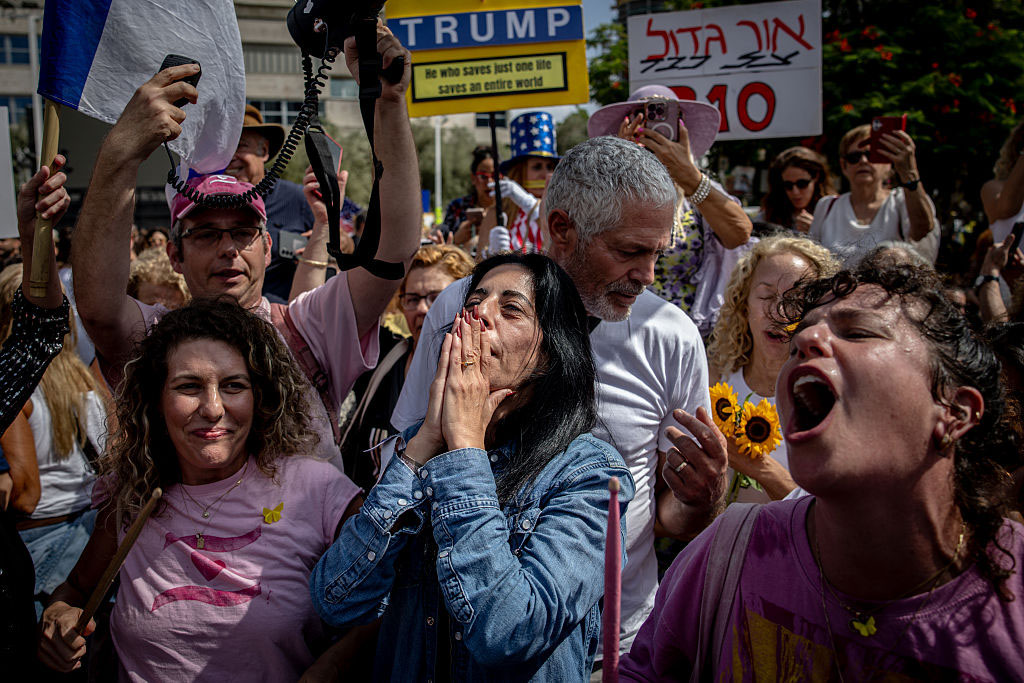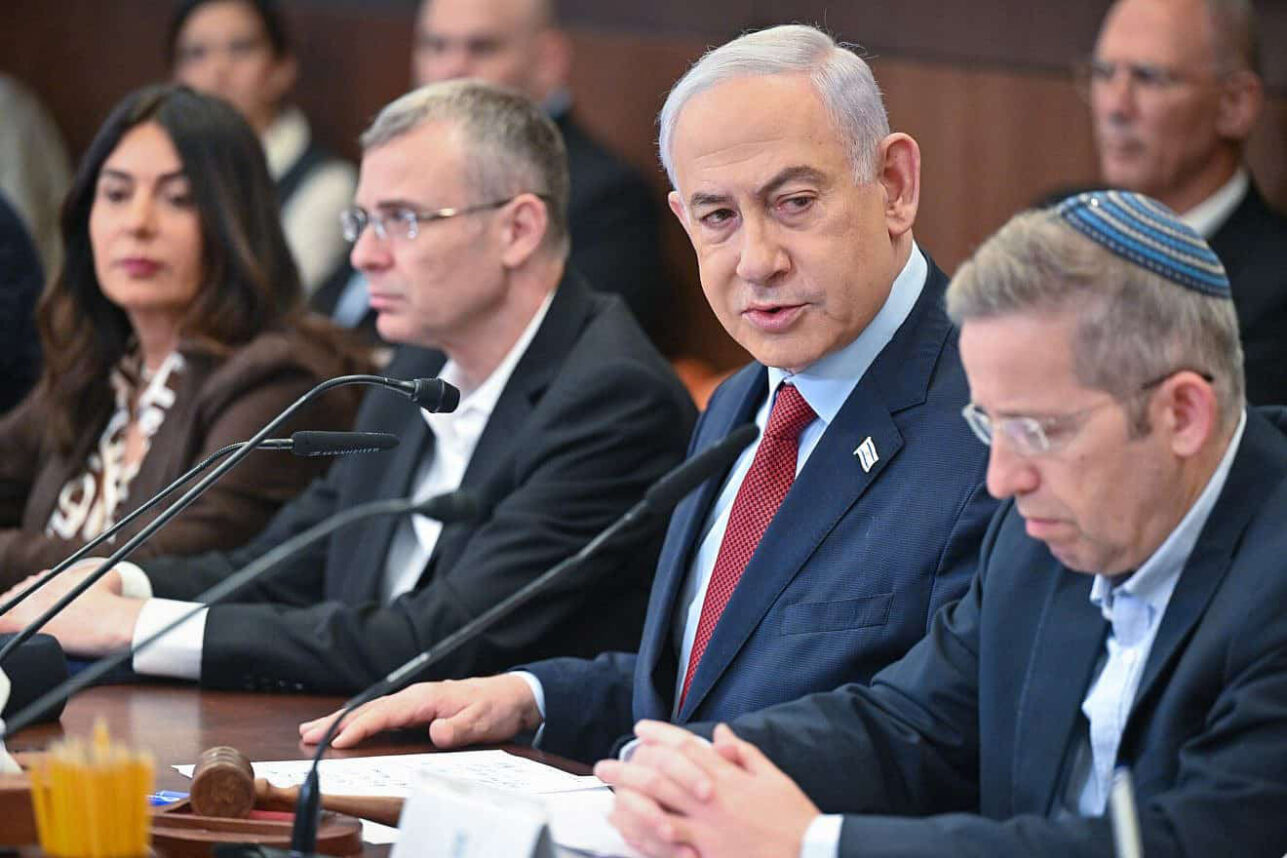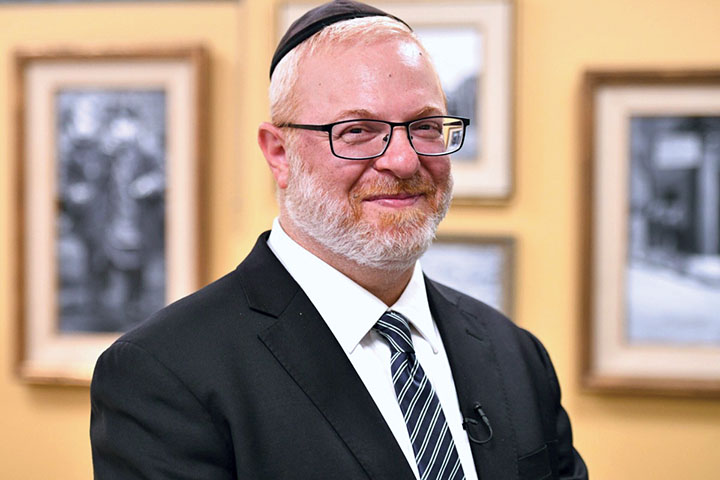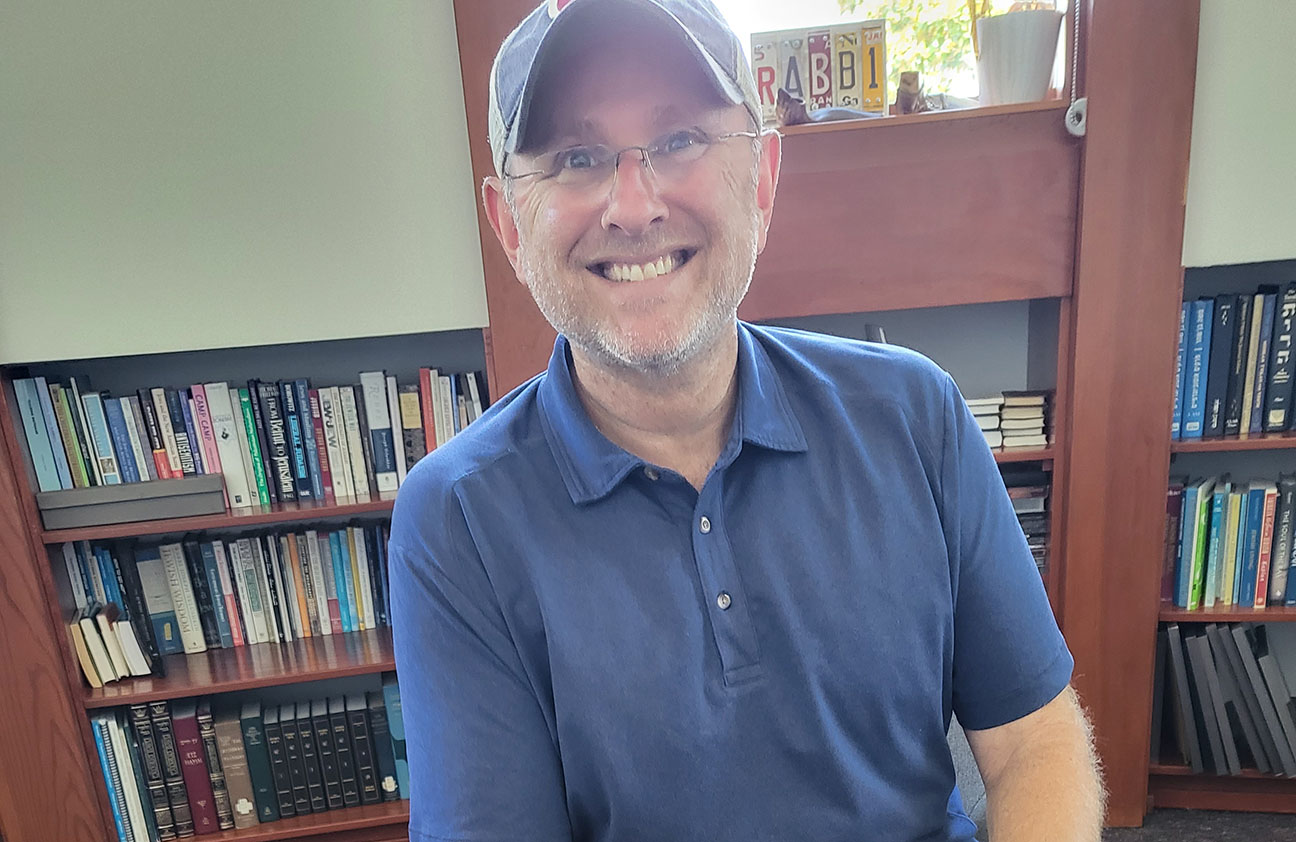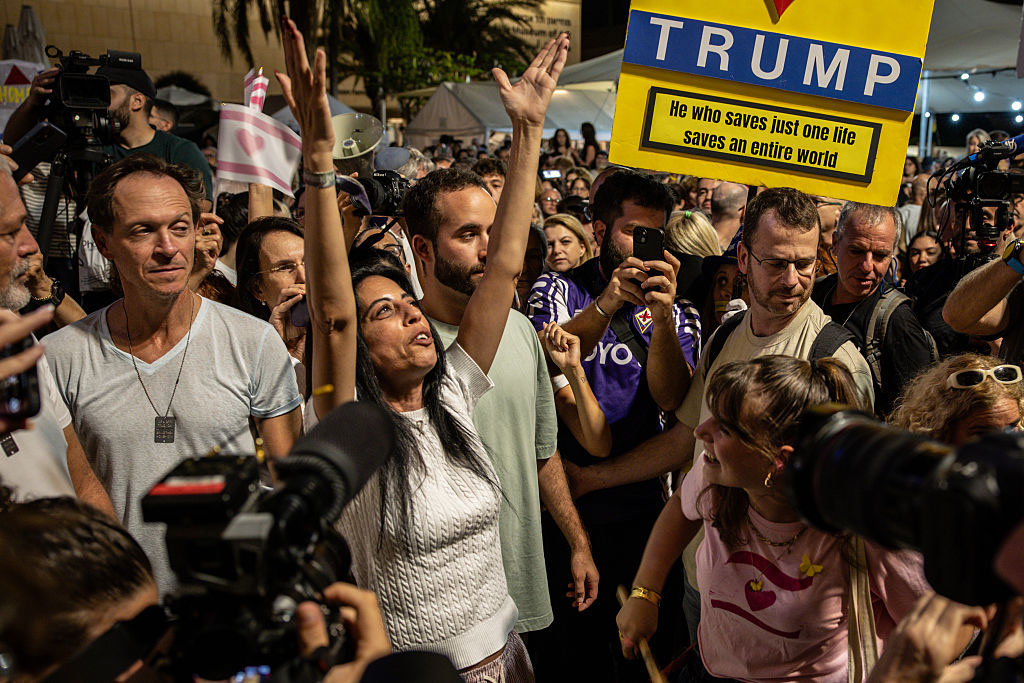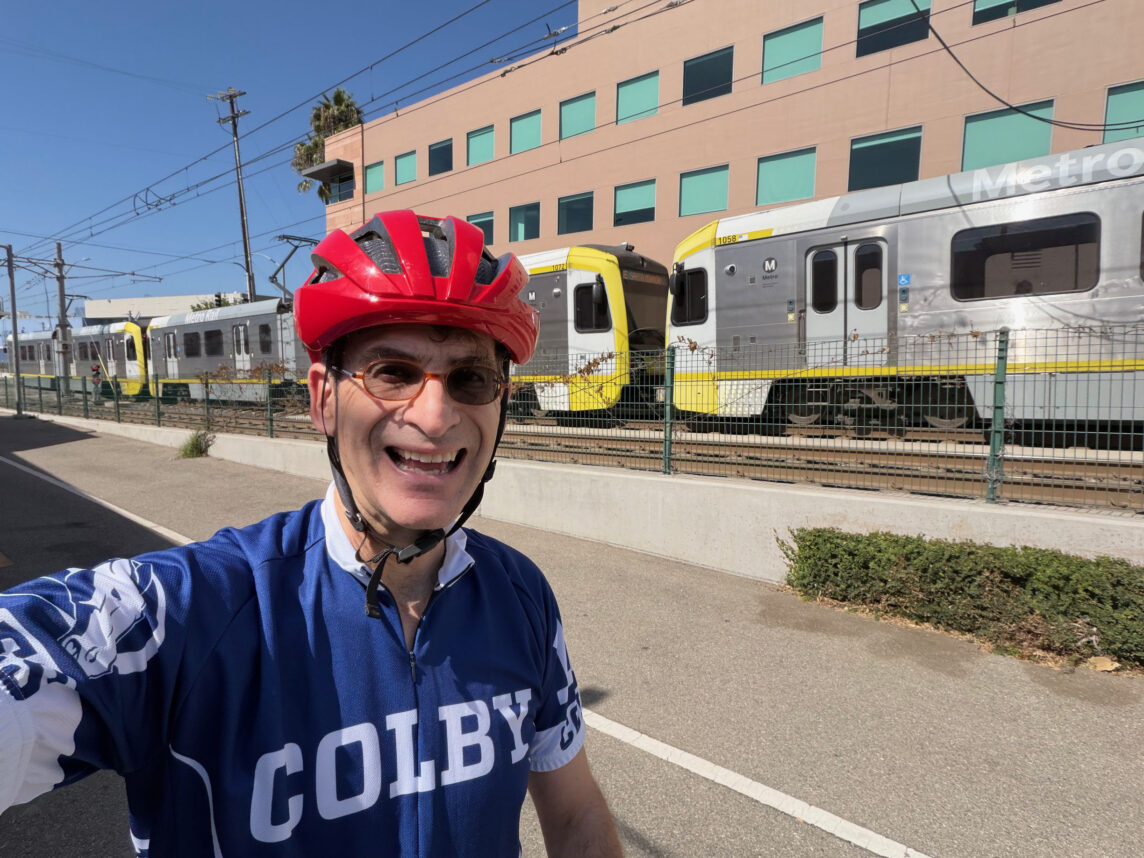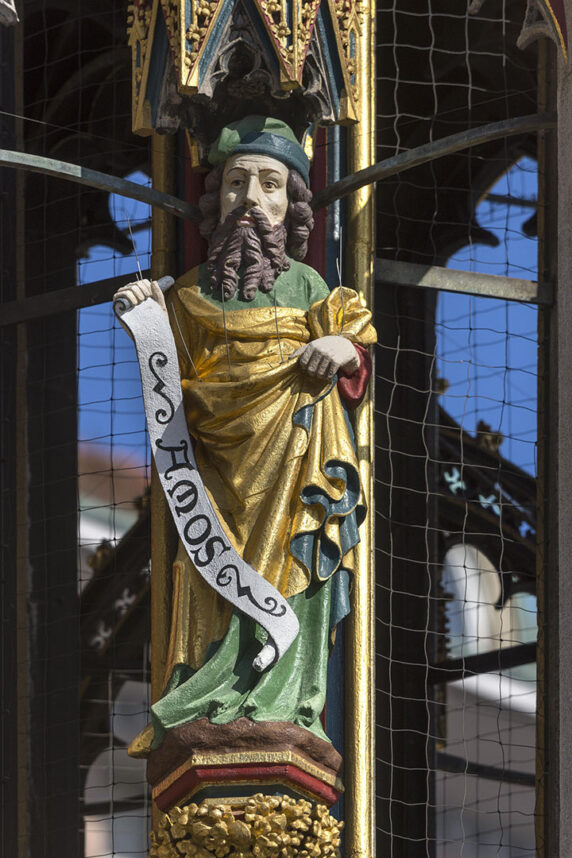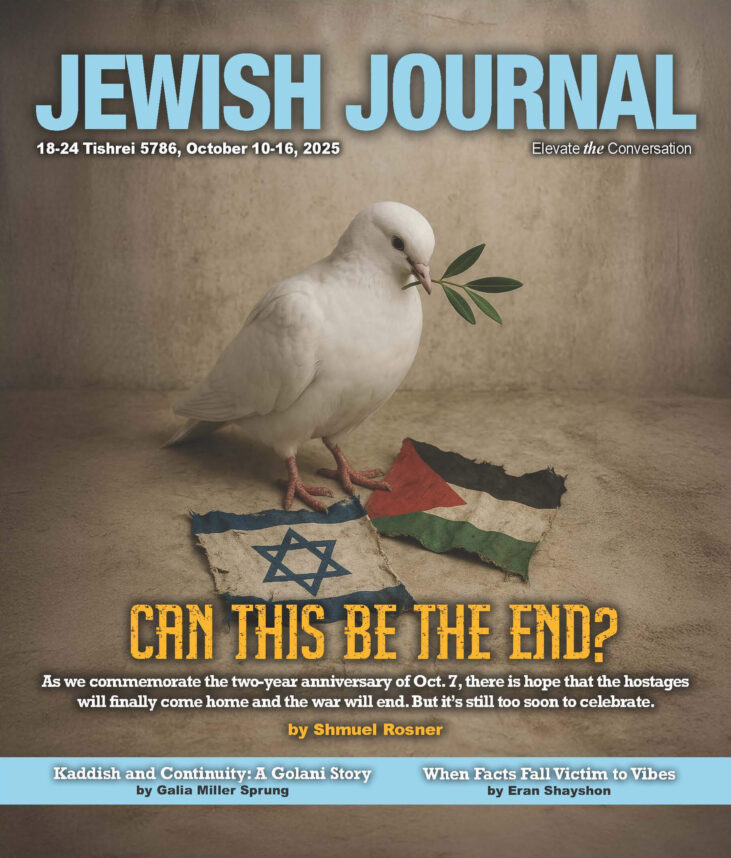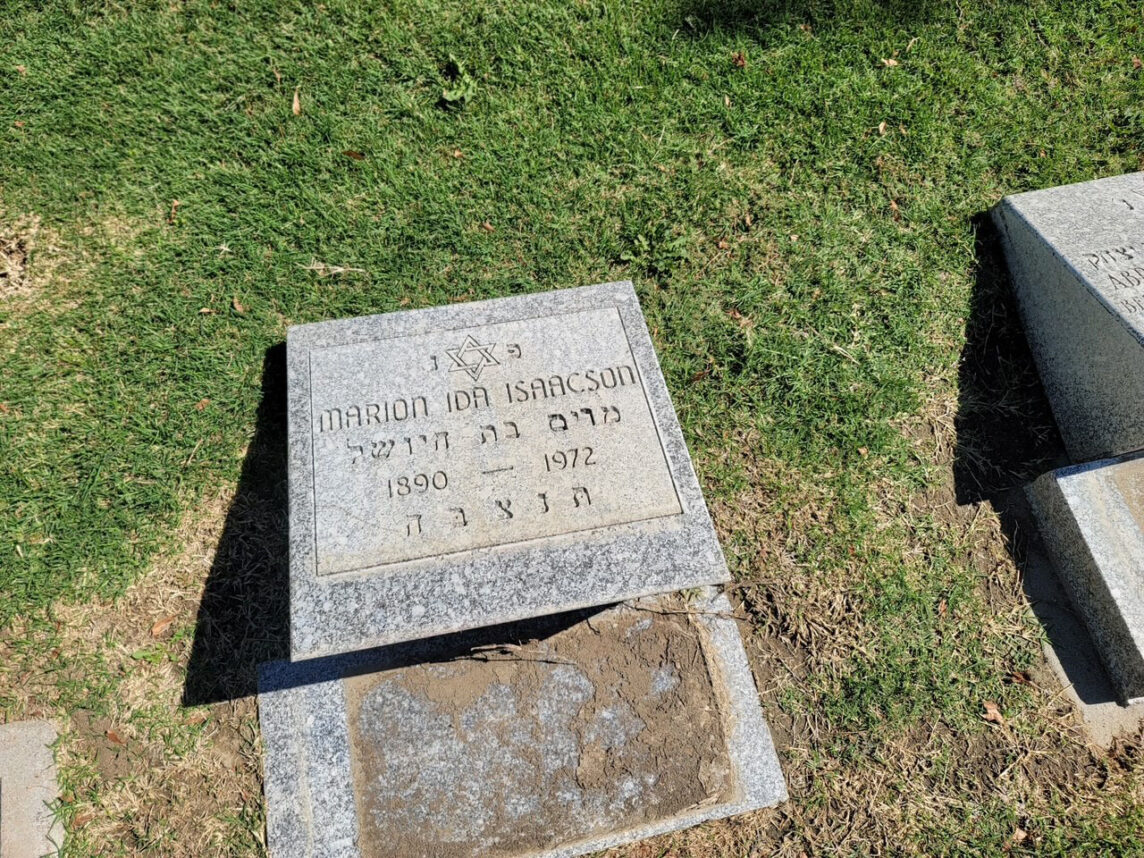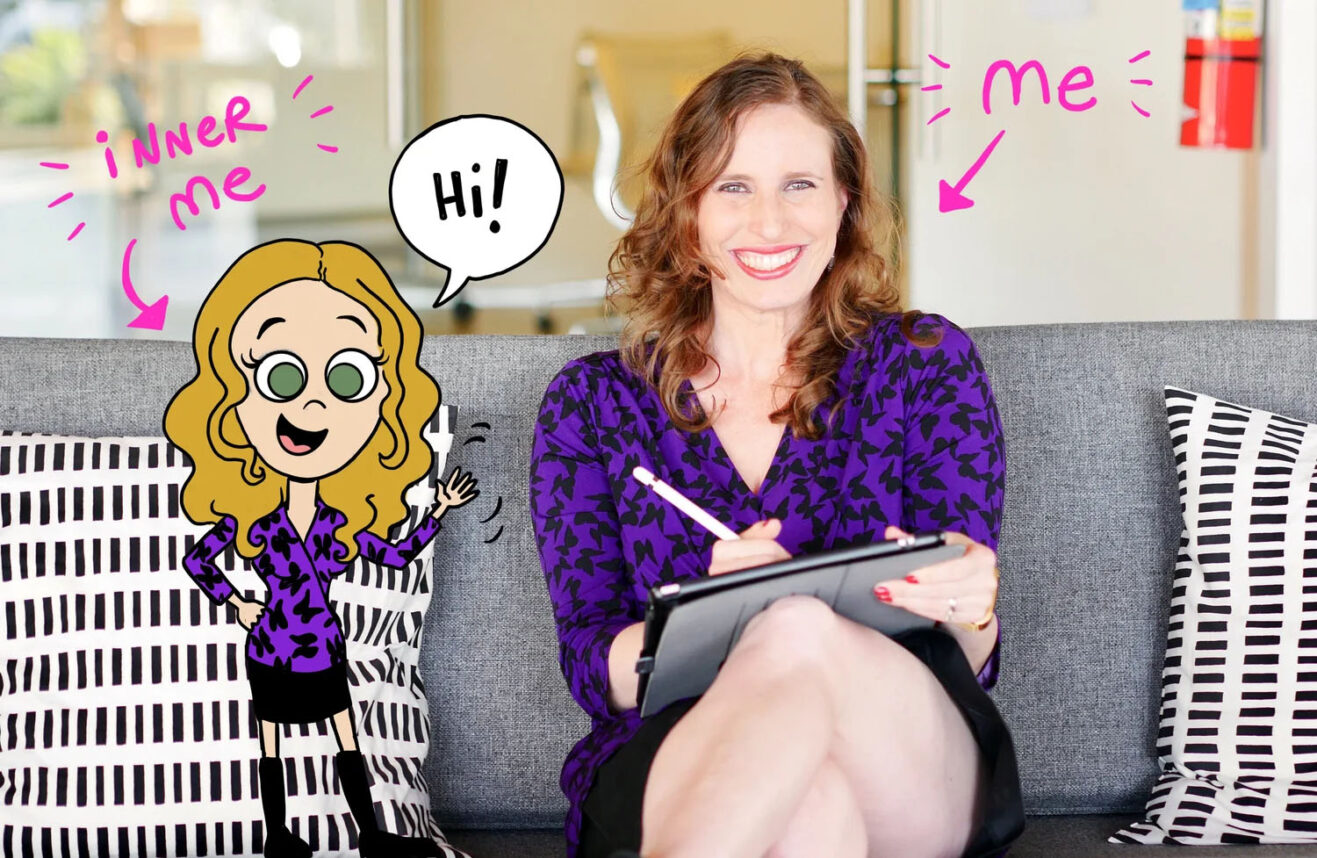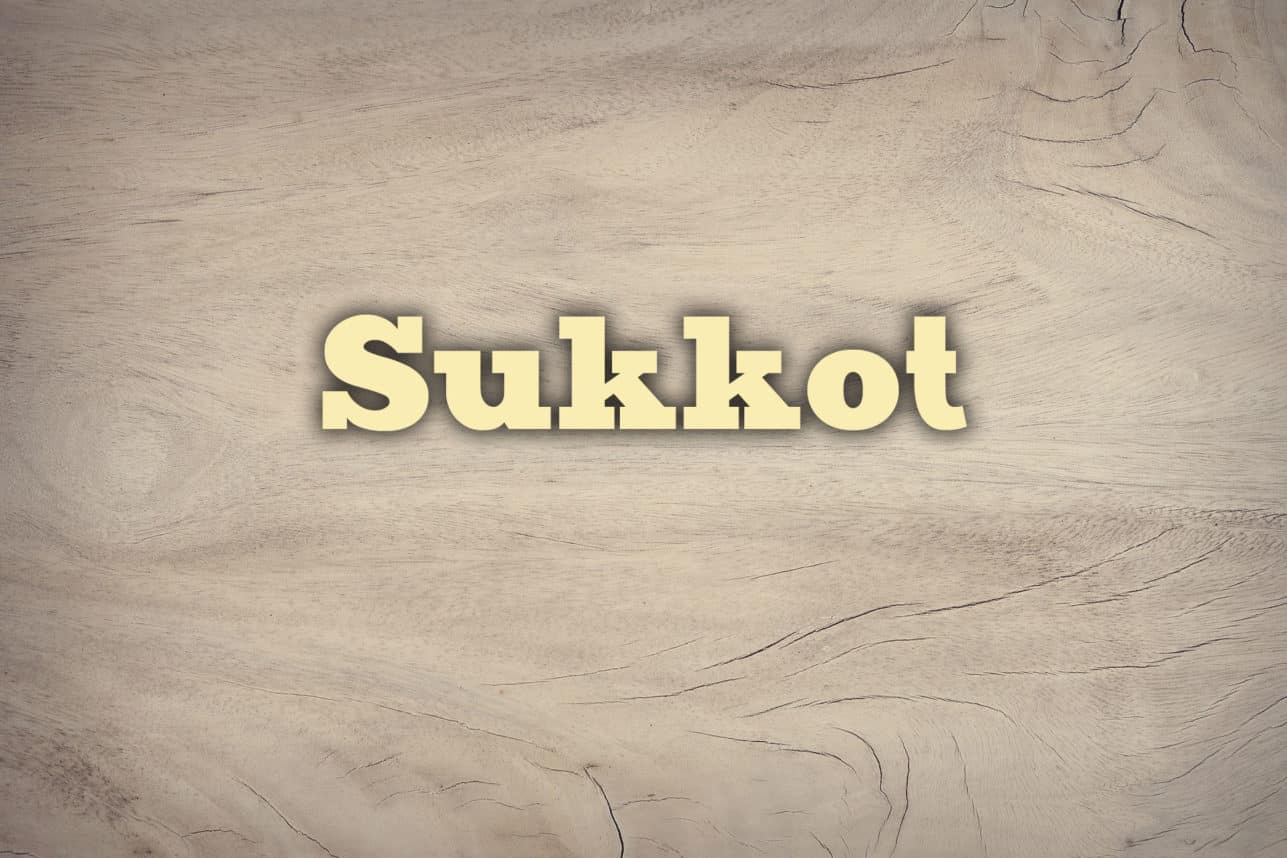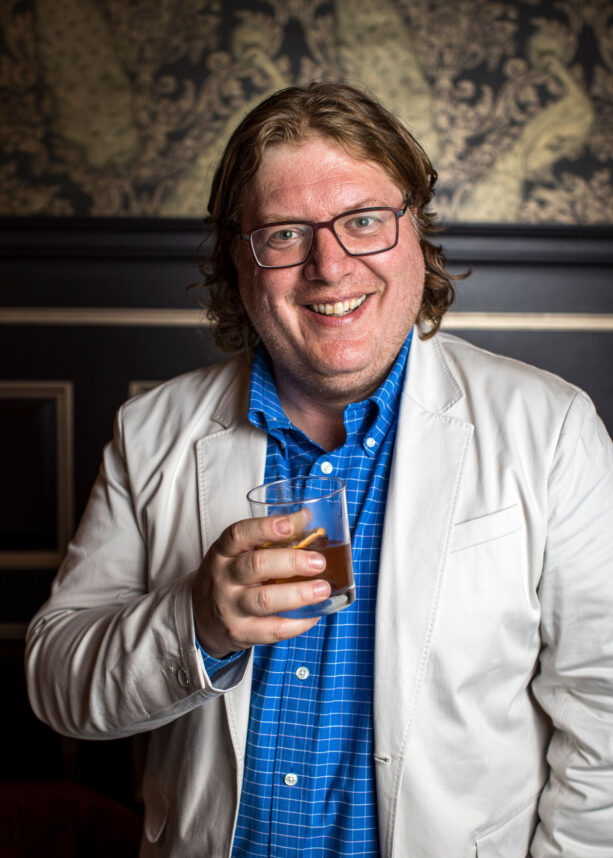
Forty-six-year old Arkady Belozovsky spent 85 consecutive days on television screens earlier this year. You can find him in the corner of your screen during New York Gov. Andrew Cuomo’s popular COVID-19 briefings. That’s because Belozovsky is Cuomo’s official Certified Deaf Interpreter (CDI).
Belozovsky, who was born deaf to deaf parents and grew up in Ukraine, began working with Cuomo on March 27, when coronavirus cases in New York were on the rise. Before accepting the job with Cuomo, Belozovsky worked as an interpreter for Rhode Island Gov. Gina Raimondo and was the first full-time deaf faculty member at Brown University.
Belozovsky spoke with the Journal on Zoom through his hearing interpreter Jeff Harris about his time working with the governor, growing up in the Soviet Union where he could not openly practice Judaism, and his favorite word in American Sign Language.
JJ: I read you haven’t actually met Gov. Cuomo. Why is that?
Arkady Belozovsky: They are doing [my interpreting] remotely because of the coronavirus, and [Cuomo] moves around to New York City. He is all over the state. Syracuse. You name it. I am in the same media room for every conference.
JJ: What’s it like working with him?
AB: I have been able to study his New York City accent and try to match the dialect and his body language, his vocal intonation and portray the same. Everybody seems to be satisfied. It is great exposure and access for everybody.
JJ: Jeff Harris is translating for you off camera and signing Cuomo’s words to you. What is that like?
AB: We have been able to mesh well. We have great chemistry and rapport. It’s a great waltz, if you will. We dance together in this job.
JJ: What role did Judaism play in your life growing up in the Soviet Union?
AB: I had no exposure growing up but I knew to identify as Jewish. It was on my birth certificate. It was part of our nationality and identification papers. It was hard for me to grow up in the former USSR, in Ukraine, where a lot of kids mocked me, bullied me, beat me up and I had to eat the Passover bread in secret.
JJ: Can you recall the first time you saw an observant Jew?
AB: In Brooklyn. One of my relatives. I was staying at their apartment. I looked down and saw a Chasidic Jewish person walking by. “Oh, that explains it,” I thought. In Russia, the [word] “Jewish” [in] sign [language] is [the payot/side curls]. I never understood what that meant. I never saw a Jewish person with that hair coming down in my entire life. I finally had that epiphany moment and to understand the etymology.
JJ: When did you meet other deaf Jews outside of your family and family friends?
AB: I met a deaf rabbi at a summer camp. I was shocked. My jaw hit the floor. He could sign clearly.
JJ: Have you come to more fully embrace your Judaism now?
AB: I knew the Jewish history, but not Judaism. I decided at age 16 to get circumcised. My dad said, “No, no, no, no. I’m not going to do that.” I said, “I’m going to do that.” He said, “Go ahead.” So, we used a mohel. I was supposed to be named Aron in the USSR but they didn’t allow Jewish names. They had to change my name to Arkady.
JJ: Do you teach people American Sign Language?
AB: Yes. I used to teach for 16 years [at] university level. The most recent place was Brown University in Rhode Island. I was there for eight years. I loved it there. Prior to that, I was at the University of New Hampshire in Manchester as director of deaf studies. I developed courses, you name it. I got out of teaching in 2012. I love teaching workshops, especially in other countries.
JJ: Have you ever taught in Israel?
AB: No. I plan on adding Israel to the mix. My dream is to go to Israel. I have never been. That’s my home. I feel like I have flown over Jerusalem. I have seen it from a distance but I have never touched down. Plus, I want to have a bar mitzvah with my [two] sons and my father.
JJ: Do you have a favorite word in American Sign Language?
AB: I always think of Russian Sign Language and American Sign Language, they’re two polar opposites. Probably “empowerment” or “empower.”
JJ: What advice do you have for other people living with disabilities?
AB: Don’t sacrifice your dream. Don’t accept that you can’t. Just do it. Learn a way. Navigate. Overcome. Don’t wait until someone gives you something, or gives you the opportunity. Make it happen. Go forward. Don’t go backward. Focus on the future. Break down barriers. Don’t be afraid or intimidated.
Corrections: This article has been updated to reflect that Belozovsky is a Certified Deaf Interpreter (CDI), not a sign language interpreter; that he was born to two deaf parents; he had met other deaf Jews through his parents before summer camp; that his name was supposed to be Aron; and that he has two sons, not one.












